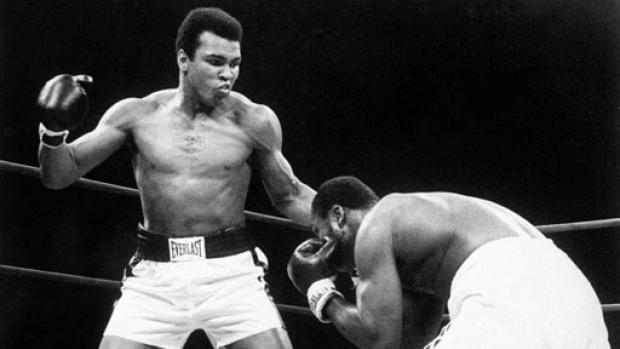Cassius Clay's win over Sonny Liston 50 years ago dubbed "moment when the 1960s began"
Cassius Clay was not a complete unknown. He had won a gold medal in the 1960 Olympics, but no one had any idea that the 22-year-old boxer stepping into the ring 50 years ago Tuesday in Miami Beach would end up having such a profound effect on American culture.
In February of 1964, Clay,
an upstart, was making a name for himself with brash talk and loud-mouth
predictions.
Even Clay's personal physician and corner-man, fight doctor Ferdie Pacheco, was concerned. He told CBS News' Jim Axelrod he was worried Liston was not going to hurt Clay, but was going to "kill him."
But, Clay exuded confidence and continued to taunt Liston up to the day of the fight.
At 17 years old, Suzanne Dundee Bonner was recruited by her father, famed fight promoter Chris Dundee, to work the fight.
"He self-promoted himself," Bonner told Axelrod about Clay. "He knew what to say. When to say it."
Still, few believed the
hype, least of all the sports-writing establishment.
Yet, Clay surprised no one more than Liston, by dancing around, moving and opening up Liston's face with jab after jab. The fight was over after
six rounds, when Liston stunned the crowd by spitting out his mouthpiece, a
sign that he was finished.
Pacheco told Axelrod that "sheer, unalloyed, insane joy" was going through his head at that time.
Clay, a young African-American fighting in a South that still kept the best hotels off limits to him, scolded the writers, saying to the crowd post fight, "I shook up the world. Now what do you all say about that now, huh?"While the fight was over, the new champion was just getting started.
The next day, Clay announced he was a Muslim, which was no surprise to many in Miami that had seen Malcolm X visiting the training sessions. Clay officially changed his name to Muhammad Ali.
A young boxer had gone into the ring. The figure that would transcend the sport to become the most recognizable face in the world, during a time of racial
and social upheaval had emerged from it.
